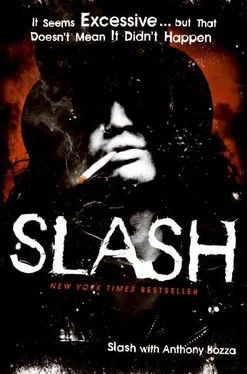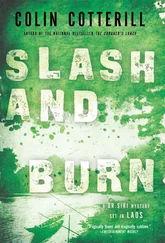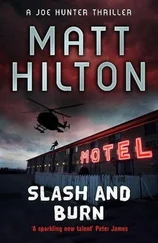My best friend, Steven Adler, was shipped back to the Valley for high school, which was as far off as Spain in my mind. I did visit him out there a few times and it never failed to disappoint: it was flat, dry, hotter than it was at home, and exactly like a sitcom neighborhood. Everyone there seemed to cherish their identical lawns and identical lives. Even at a young age, I knew something was wrong with that place; beneath the normalcy, I could sense that those people were more fucked up than anyone in Hollywood. I felt bad for Steven, and once he was gone, I retreated further into my guitar world. I went to school, always registering as if I were there every day, but on average I’d attend my first three classes and spend the rest of my time on the bleachers playing guitar.
There was only one class that meant anything to me in high school; consequently, it’s also the only one in which I earned an A. It was a music theory course that I took freshman year called Harmony, taught by a guy named Dr. Hummel. The class reduced the elements of musical composition to their roots, defining the fundamentals in mathematical terms. I learned to write time signatures, chords, and chord structures, all by analyzing the underlying logic that binds them. We never played an instrument: our teacher used a piano as a tool to illustrate the theories, but that was all; the class was purely a study of theory. While I was terrible at math, I was good at this, so it was the one class I never missed. Every time I showed up, I felt like I already knew the lessons we learned. I never consciously applied any of it to the guitar, but I can’t help but think the knowledge of notation that I picked up seeped into my mind and aided my playing somehow. There was a cast of characters in this class: among others there was Sam, the piano virtuoso, a Jewish guy with tight curly hair, and Randy, who was a long-haired, Chinese, metal guy. Randy always wore a satin Aerosmith jacket and was of the opinion that Keith Richards and Pete Townshend sucked and Eddie Van Halen was God . We eventually became friends and I came to enjoy our daily debates as much as I enjoyed that class, because it was made up of mostly musicians discussing nothing other than music.
Other classes, meanwhile, didn’t go so well for me. There was one teacher who chose to make an example of me once when I fell asleep on my desk. I had an evening job at the time at the local movie theater, so I could have been tired; it’s more likely that I was just bored out of my mind, because the class was social studies. From what I understand, the teacher stopped everything to discuss the concept of stereotype with the class. He noted my long hair and the fact that I was asleep and, illustrating the meaning of the word stereotype, he concluded that I was a rock musician who probably had no greater aspirations in life than playing very loud music. He then woke me up and asked me a few pointed questions.
“So I take it you’re probably a musician, right?” he asked. “What do you play?”
“I play guitar,” I said.
“What kind of music do you play?”
“Rock and roll, I guess.”
“Is it loud?”
“Yeah, it’s pretty loud.”
“Notice, class, this young man is the perfect example of a stereotype.”
I am always grumpy when I first wake up, so this was more than I was willing to take. I got up, walked to the front of the class, flipped his desk over, and left. That incident, combined with a prior weed bust, spelled the end of my career at Fairfax High.
I LEARNED MORE ABOUT MY PEER GROUP at the unofficial high school recess where freshmen to seniors from Fairfax and other high schools gathered at the end of a long dirt road at the top of Fuller Drive, way up in the Hollywood Hills. It was called Fuller Estates; it’s not there anymore—now it’s just a curve on the hiking trail in Runyon Canyon. It was a teenage wasteland in the late seventies and early eighties, but before that it was much more interesting: in the 1920s, it was Errol Flynn’s mansion; it occupied a few acres at the top of that wide hill overlooking L.A. Between then and when I was a kid, it fell into serious decline, and by 1979 it was a ruin of a foundation; just a big concrete slab and an empty pool. By the time I saw it, the place was a statuesque wreck with an amazing view.
The song’s bombastic, apocalyptic riff just consumed my entire body.
The crumbling concrete walls were a two-level maze that was a perfect, out-of-the-way spot for stoners of all ages. It was pitch-black there at night, far away from the glare of any streetlight. But somebody always had a radio. I was on acid up there the first time I ever heard Black Sabbath. I was out of my mind, staring into the black sky above Fuller Estates, tracing trails between the stars when someone nearby blasted “Iron Man.” I’m not sure that I can pinpoint how I felt; the song’s bombastic, apocalyptic riff just consumed my entire body.
That place and everyone there was straight out of a seventies teen movie. In fact, it was captured perfectly in Over the Edge , a film starring a young Matt Dillon, about a bunch of repressed, stoned, and out-of-control Texas teenagers who were ignored by their parents to the degree that they took their whole town hostage. In the film, as I bet it was for all of the kids who hung out up at Fuller, the characters’ parents had no idea as to what their kids were really up to. In its most aggressive and most realistic moments, that film was a true representation of teenage culture at the time: most kids’ parents either didn’t care enough to notice or naïvely thought they were doing the right thing by trusting their children and turning a blind eye.
WHEN I WAS IN HIGH SCHOOL KIDS LOOKED a few different ways. The influence of spandex seeped in, thanks to Pat Benatar and David Lee Roth, and that trend left its colorful mark: girls wore tight, low-cut, neon body suits, and some guys weren’t far behind. I remember seeing Capezios when I was in junior high, but thank God, they were out by the time I was a freshman; although feathered hair was still standard for either sex. It was far too common and wasn’t cool by any means.
Another huge influence was the film American Gigolo , starring Richard Gere, which chronicled the downfall of a stylish Beverly Hills male escort. It was the worst thing that could have happened to Hollywood teenagers because every girl who saw it strove to re-create their personal version of that world. Suddenly, girls who were thirteen, fourteen, and fifteen tried to dress as if they were twenty-five and aspired to date well-dressed, much older guys. I never dialed into their psychology, but I watched more than a few girls I knew, as early as fifteen, start wearing too much makeup, doing blow, and dating nineteen-year-olds and twentysomethings. It was fucking pathetic and straight up sad. A lot of them became casualties of the scene before they even reached legal drinking age. After all, they had a huge head start, so it caught up to them before they even got out of the gate.
I DIDN’T LOOK LIKE ANY OF THE OTHER kids in school and my interests certainly set me apart. I have worn long hair, T-shirts, jeans, and Vans or Chuck Taylors since I first had a say in the matter. Once I was in high school, all I cared about was music and playing guitar; I never abided by the trends that swayed my peers, so I was a throw-back. It’s always been a paradox with me; I stood out but I didn’t crave or court obvious attention. All the same, I was used to not fitting in and wasn’t comfortable with anything else: I had changed schools so often that I was the perennial new guy—and probably, in the minds of my peers, the freaky new guy.
It didn’t help that to the naked eye, I wasn’t obviously anything: upper-, middle-, or lower-class; white, black, or otherwise. As I got older, and as my home address continued to change, I realized and understood why my mom so deeply pondered my school registration forms before checking one box or another: if I was listed as black in certain school districts I might be bused out of the zone to an inferior school when I otherwise might be enrolled in the better school down the street if I were a registered Caucasian. I never found a niche based on race in high school, and I’ve always been aware of my race only when it was an issue in the minds of others. I have been in many situations, back then and ever since, when I’ve noticed very “open-minded” individuals adjust their behavior because they were unsure of whether I was black or white. As a musician, I’ve always been amused that I’m both British and black; particularly because so many American musicians seem to aspire to be British while so many British musicans, in the sixties in particular, went to such great pains to be black. It was another way I wasn’t like anyone else, but I can count on one hand the confrontations I’ve had that were racially motivated; they occured once I was submerged in the very white universe of eighties metal. One time at the Rainbow I got into a fight with Chris Holmes from W.A.S.P. Duff overheard Chris saying that niggers shouldn’t play guitar. He didn’t say it to me, but it was obviously about me. As I remember, Duff told me about it later and the next time I saw Chris I went up to confront him and he took off running. Aside from insulting me, it’s one of the more ridiculous and untrue things a musician, of all people, could ever possibly say.
Читать дальше
Конец ознакомительного отрывка
Купить книгу




![Сол Слэш Хадсон - Slash. Демоны рок-н-ролла в моей голове [litres]](/books/387912/sol-slesh-hadson-slash-demony-rok-n-thumb.webp)


